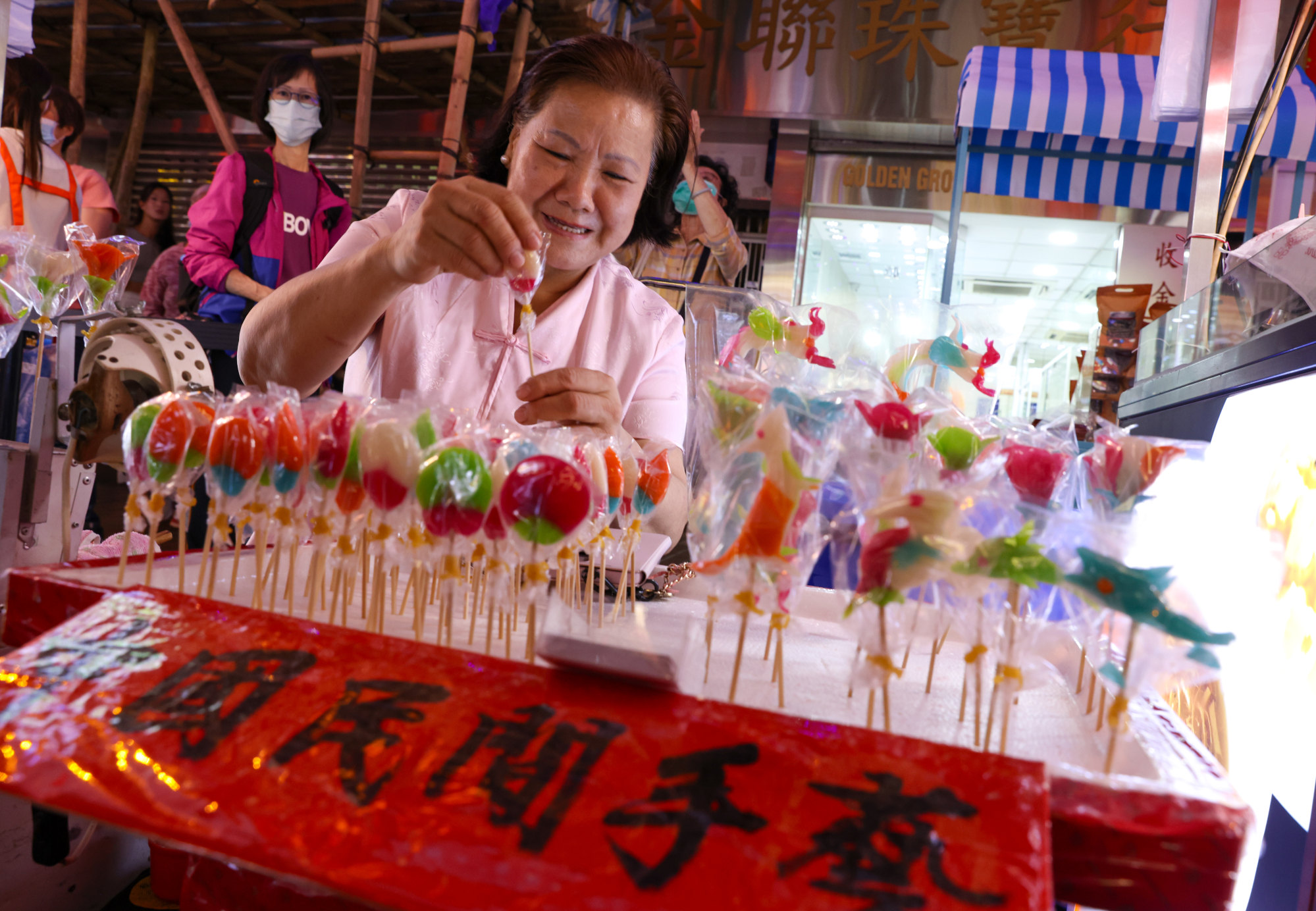[ad_1]
The newly revamped night market on Hong Kong’s Temple Street has helped drum up more business and boost footfall at the Jordan attraction, though most of those visiting are locals, a sector representative has said.
“During these early stages of the market, I hope we can bring more tourists in,” Raymond Chan Kam-wing, chairman of the Yaumatei Temple Street Association of Hawkers and Shop Operators, told a radio programme on Monday.
“Currently, we have observed about 70 per cent of visitors are locals, while 30 per cent are tourists. I hope this trend can shift.”

Chan also said that he hoped non-locals, especially those from mainland China, would see online promotions about the market and visit when in Hong Kong.
“The goal is to bring their ratio up to 50 per cent gradually, and then to 70 per cent of the total visitors,” he said.
He added that the market was intended to give the city an additional tourist attraction as existing vendors were mostly selling goods targeting foreign visitors.
Hundreds of people flocked to the long-awaited reopening of the Temple Street night market in Kowloon on Friday to enjoy a range of local delicacies sold at more than 30 stalls.
The night bazaar, which runs from 2pm to 11pm each day, is initially set to last for six months, with authorities planning to conduct a review on footfall and visitor reactions afterwards to determine the next step, according to Tourism Board executive director Dane Cheng Ting-yat.
The market’s overhaul is part of wider government efforts to boost the nighttime economy through the “Night Vibes Hong Kong” campaign. Vendors can operate their stalls at the bazaar without paying rent.
When asked about complaints from existing vendors that the night market had diverted visitors’ attention away from them, association chairman Chan said that most businesses still welcomed the bazaar and were waiting for promotional efforts to bring in tourists.
Tasty debut as crowds flock to Hong Kong’s revamped Temple Street night market
Tasty debut as crowds flock to Hong Kong’s revamped Temple Street night market
“I think some vendors selling goods like T-shirts, bags … or luggage … items geared heavily towards foreigners – they have not felt the benefits yet,” he said.
The sector representative stressed that nearby residents were happy about the closing time and there were no noise complaints so far. Chan said he hoped the market could eventually extend its hours until 12am because the current closing time could be “a little bit of a buzzkill”.
“But of course, we need to strike a balance between ensuring the satisfaction of both vendors and local residents … We will see,” he said.

Chan also said that the biggest issue now was hygiene, pointing out that measures, such as placing larger and more bins and increasing garbage collection frequency, were being introduced.
The goal was to ensure a clean environment without inconveniencing the transport of waste, he added.
Appearing on the same radio programme, lawmaker Scott Leung Man-kwong said he had personally visited the site and heard feedback from visitors and neighbourhood residents that there were insufficient bins.
“We have suggested to the Tourism Board that there can be signs on the ground showing people where to go to get rid of their rubbish,” he said.
Forget new night markets, ‘Night Vibes Hong Kong’ should revitalise old ones
Forget new night markets, ‘Night Vibes Hong Kong’ should revitalise old ones
Leung also threw his support behind turning the market into a long-term attraction, adding that it could become a “popular place for ordinary people to hang out”.
“But we need to think about how to expand it, because the response I’ve heard is, the parts where they are selling food are very crowded, but other areas of Temple Street are not having much luck,” he said.
“Perhaps we can incorporate local cultural elements, or creative youth culture into those parts?”
The lawmaker said the board would need to speak to on-site vendors about transforming the market into a permanent event, including a discussion on rents.
“But I’m sure if this turns out to be well and profitable, businesses would not mind paying to participate in the market long-term,” Leung said.
[ad_2]
Source link
